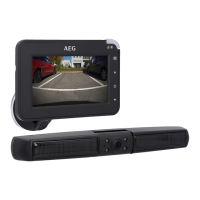35
Service
Should you have any questions
regarding commissioning or operating
in spite of studying these operating in-
structions, or if a problem should occur
against all expectations, please get in
contact with your specialist supplier.
Disposal
The packaging consists of non-conta-
minating materials that you can dispose
of at your local recycling point.
Do not throw electrical appliances
in with domestic waste!
In accordance with European Directive
2012/19/EC for waste electrical and
electronic equipment (WEEE) and con-
version to national law, used electrical
appliances must be collected separately
and taken to a recycling point. For ways
to dispose of old electrical appliances
please contact your community or city
administration.
Do not dispose of waste devices
with household rubbish. Discharge
used battery packs and return the
battery packs to a public waste
management or collection site. Properly
dispose of damaged or defective
battery packs in compliance with local
regulations.
CLEANING, CARE
AND MAINTE
NANCE
Minimal care will ensure your device
remains functional for years.
Carefully wind the cable when storing
the device. This will help prevent
accidental damage to the cable and
the device.
Clean the product with a soft, dry
cloth.
Store the machine in a clean, dry
place.
Changing the fuses
A fuse inside the car plug safeguards
the device. This will respond in the
event of a short circuit or voltage peaks
and must then be replaced.
Attention!
Do not use higher rated fuses. The elec-
tronics may otherwise be damaged.
1. Unscrew the retaining pin (1) with
the fuse cover (2) from the car plug
(4).
2. Insert a new micro-fuse (3) of the
same rating (see Technical Data).
3. Replace the retaining pin (1) with
the fuse cover (2) in the car plug (4).
1
2
4
3

